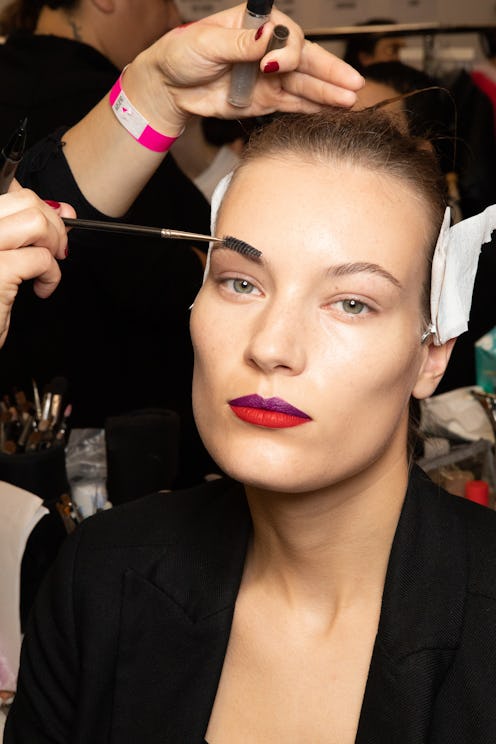(Beauty)
Here’s How — & How Often — You Should Actually Be Cleaning Your Makeup Tools

There are two types of people you should seek out when first learning how to properly clean makeup brushes: makeup artists (who use and clean brushes every day), and the people behind beauty brands (who actually make said tools). Fortunately for those just now noticing how much foundation is on their go-to brush, Jenny Patinkin is both. Creator of the eponymous beauty tool brand, Jenny Patinkin, she has some definitive advice on the care and maintenance of those makeup brushes you reach for so often.
First up is frequency — you don't actually want to wait too long between deep cleans. "Weekly washes for your makeup brushes is the standard in regular times, or after each use if you're a beauty professional," says Patinkin. "But these days, if you're not wearing much makeup, just try to wash after about every five to seven uses."
Take note, though: Makeup brushes and sponges require two separate schedules. "Makeup sponges should really be washed after every use, but that's not realistic for most people, so weekly at worst and more if possible. For added clean in these days of coronavirus, clean dry brushes and sponges can also be spritzed with a little rubbing alcohol before each use," she continues.
How you clean your tools depends on the cleanser you pick up; liquid makeup brush cleaner is common, though solid soaps are available, too. Regardless of which one you opt for, Patinkin recommends keeping a towel on hand during the process. "Once you have rinsed your brushes fully clean, squeeze away excess water in a towel or washcloth and then smooth the towel over the whole top to reshape. Leave your brushes to dry with the heads hanging over the side of a counter so that they don't get dented and can get full air circulation," she notes.
Just guessing here, but you probably spent a pretty penny on your brushes. So, take a moment to read through the ingredient label on a cleanser before you charge ahead. "Ethyl alcohol can be very drying to natural hair brushes, although these days, it is beneficial for hygiene purposes," Patinkin explains. And much like makeup, the same ingredients clean beauty fans often avoid can pop up in brush cleaners; Patinkin lists palm oils, parabens, fragrances, sulfates, and animal fats.
But with this knowledge in hand, you're ready to go. Below, five fan-favorite brush cleaners to snag before you begin cleaning out your makeup bag.
We only include products that have been independently selected by The Zoe Report's editorial team. However, we may receive a portion of sales if you purchase a product through a link in this article.
This article was originally published on